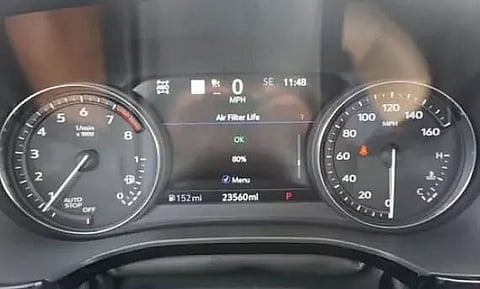
- Home
- Live Blog
- Breaking News
- Top Headlines
- Cities
- NE News
- Sentinel Media
- Sports
- Education
- Jobs

NEW DELHI: The Novel Coronavirus
waves have hit every industry, disrupting the way they used to operate. It's no
different with the pre-owned car market which is experiencing a paradigm shift
right now, says Jatin Ahuja, MD and founder of 'Big Boy Toyz'.
From changed customer preferences to digitization to increased demand, the segment has emerged as a silver lining for the automobile sector during the global crisis. Jatin Ahuja shares what has changed since the virus outbreak.
One of the most obvious patterns is the increased demand for vehicles in the mid-segment range. Brands in this segment are stacked with cars belonging to luxury segment, while being sold at a lower price. If this rise in demand continues to grow, the affordability of used cars will give brand new luxury cars a scare, he says.
Digitalization is another segment where pre-owned luxury car dealerships are evolving as business owners. While some have introduced features like virtual tours and car home deliveries, others have launched mobile application to help their customers decide within the comfort of their homes.
"Also, COVID-19has had a huge impact on changing buying behavior and their views towards used luxury cars. The economical setbacks, professional setbacks, hit on income have added to the slump of the automobile sector, even morefor the luxury vehicles. Buyers are more conscious about their expenses and luxury spending, now more than ever. Setting something aside for what's to come is the new mantra. Another perspective is the way of life and viewpoint of an individual looking for a luxury vehicle. Given the current circumstance, purchasing a new luxury vehicle may not be possible. This gap is then fulfilled by the used car market which is seeing a flood of responses because of many reasons — ease of purchasing and cost, to name some," writes Ahuja.
The fall in Goods and Services Tax (GST) on used luxury vehicles to 18 per cent has reduced the overall cost and the differential cost between the unorganized and semi-organized players in the market. Most customers in this segment are repeat buyers as they see purchasing an old Audi or a Merc more significant than purchasing another brand-new mid-segment vehicle, believes the expert.
Social distancing, contactless purchasing, and virtual experiences are demanding for technology in the sector. Digitization is assuming a critical part in empowering the development of the used car market. Numerous dealerships are focusing on setting online buying experience — beginning from queries, test-drive at doorstep, customization, booking, payments, and delivery. Social media is the best approach to handle an ever-increasing number of queries, says Ahuja.
The pandemic has given virtual experiential buying a kick for used luxury car market. It is during such circumstances, car producers and retailers ought to re-align their showcasing techniques to the "new standards" with offers and advancements to charm the clients.
The stigma attached to the used car industry is no longer the same, as more individuals are gradually opening to this idea. The COVID-19 pandemic has assumed a major shift in the upliftment of this fragment as individuals now focus on spending their money judiciously on assets from an investment perspective, concludes Ahuja. (IANSlife)
Also Watch: Why lie? COVID-19 Cleaning Staff Asks Himanta Biswa Sarma
Also Read: Supreme Court junks plea alleging cartelisation practices by Uber, Ola